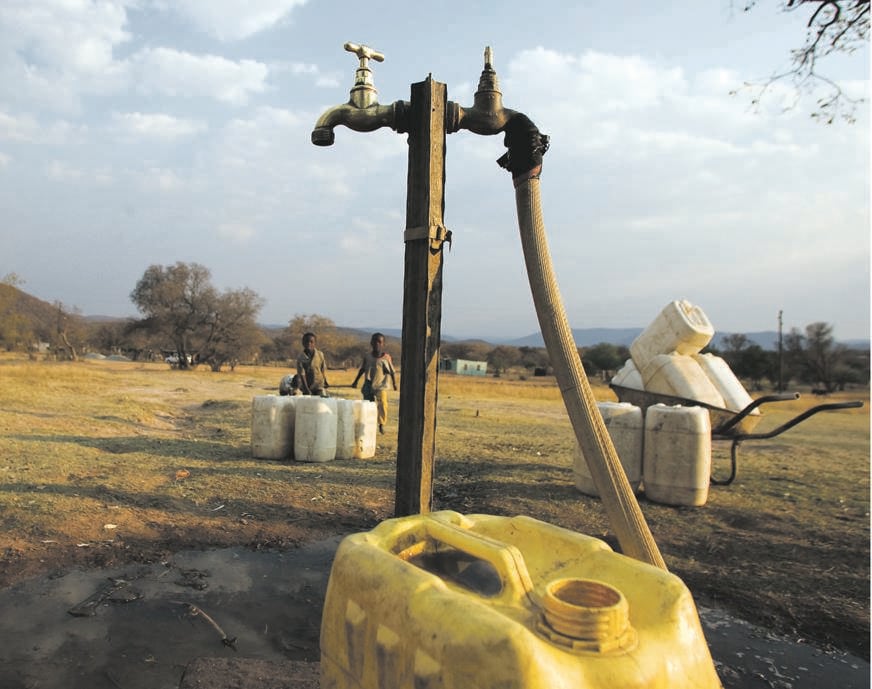
The wide-spread droughts make it incumbent on every organisation to find innovative ways to improve how efficiently it uses water. Failure to do so threatens the sustainability of businesses – and society at large, writes Nomathemba Mhlanga.
South Africa’s dire water shortage poses serious economic and sustainability challenges to the country.
Every organisation hoping to survive in this environment simply has to integrate water efficiency solutions into its business strategy.
National Treasury recognised this in its recently published economic policy paper, noting that “South Africa will be unable to support inclusive growth and economic transformation if water supply is severely constrained.”
Unfortunately, our supplies are indeed constrained, and projections mentioned in the Paper estimated that by 2030, the demand for water in South Africa would reach 17.7 billion cubic litres, while supply would be only 15 billion cubic litres – before factoring in the effects of climate change.
This not only has implications for water infrastructure and water policy in the country, but it is also incumbent on the private sector to find ways to minimise our water consumption – to reduce our environmental impact, and also to ensure that our businesses and our communities survive.
The choice facing us is: Do we want to be an asset to society, or a liability?
Assuming we want to make a constructive contribution to our society, it thus becomes critical that we build a sustainability culture in our organisations, where water-saving principles guide all of our initiatives, and we are constantly refining our operations to enhance water-use efficiency.
Our experience has been that this can be effectively achieved as an integral part of a business model. The “share and re-use” principles that CHEP is built on mean that sustainability is an integral part of what we do.
We are a global leader in the logistics and supply-chain sector. Our recently published 2019 sustainability review notes that by sharing and reusing our pallets and other platforms, CHEP clients have saved 2 600 megalitres of water (1038 Olympic swimming pools), compared to single-use alternatives.
But this is not enough. Organisations need to constantly be coming up with water-saving innovations if we are to curtail the demand-side challenges that business poses. Many are doing just that.
In the car-rental space, for instance, an environmentally conscious company has devised a method of recycling the water used during its car-washing process. By doing so, it was able to cut the water needed for a single wash from 185 litres to 28 litres. In just over a decade, the company calculated that it had saved one billion litres of water.
In the brewing industry, a brewer was able to cut its water use by 30% by partnering with the barley growers that provide some of the inputs for its products. The savings improved the company’s efficiency to where just more than three litres of water are needed to grow all the ingredients in a litre of beer. Elsewhere in the industry, water-to-beer ratios can be as large as 9:1.
In the supply-chain space where CHEP operates, we have found opportunities for significant water savings in surprising places. One such area is our cleaning process.
The pallets and containers that are shared and reused by our clients need to be cleaned upon return to our service centres, before being issued to the next customer. This cleaning also means removing the adhesive labels that have been applied to the crates to assist with digital tracking and tracing.
Previously, these labels used an extremely sticky adhesive that required intensive washing and spraying using high-pressure hoses and several litres of water at a time before it could be removed. Our solution was to develop a new, Easy Peel Label that require no water for removal.
This seemingly small innovation can have a massive impact on water-use efficiency. We estimate that if all of our customers in South Africa adopt the Easy Peel Label, and if it is used throughout the supply chain, we could save enough water to provide drinking water to 21 918 people for a year. We have launched a drive to encourage all our clients to “make the change” to the Easy Peel Labels.
These kinds of innovations are practical examples of organisations addressing water scarcity through innovation. However, there needs to be more.
Collective action, across industries, across sectors and across society is required if we are to materially reduce the enormous water footprint of South African business, in line with our national water strategy.
It is incumbent on all companies, as corporate citizens, to investigate their own processes, systems and supply chains and to identify where they can be made more water efficient. This should become part of corporate culture, unlocking the skills and creativity of staff and stakeholders so that we can all make a contribution.
The encouraging part is that this process is already underway. Water-consciousness is gradually entering the corporate and national discourse. Every organisation should do its bit to accelerate this trend. The sustainability of our businesses, our future generations – and our country – are at stake.
*Nomathemba Mhlanga is the senior manager of Sustainability at supply chain solutions company CHEP




 Publications
Publications
 Partners
Partners









